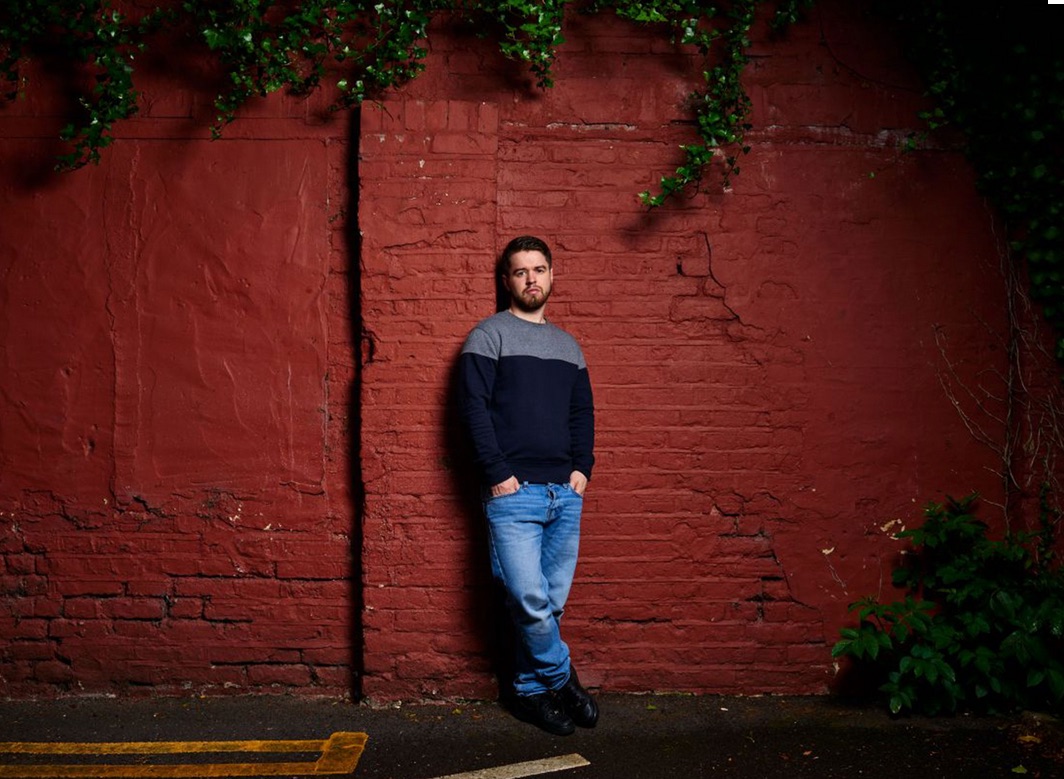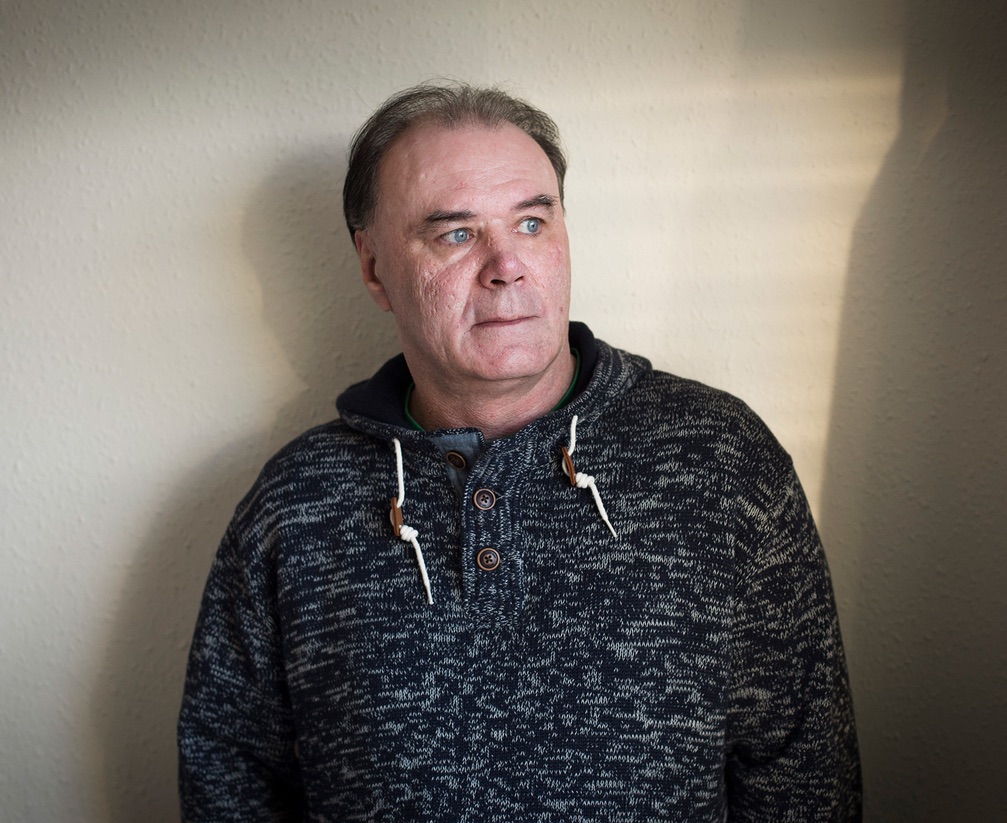[contextly_auto_sidebar]

Sam Hallam was serving life imprisonment for a murder he did not commit. Pic by Micha Theiner for Independent on Sunday
Today the Court of Appeal will hear a challenge to the highly restrictive miscarriage of justice compensation scheme introduced by the Coalition government in the cases of Victor Nealon and Sam Hallam.
Both Nealon and Hallam – see here and here, for past articles on the Justice Gap – are undoubtedly innocent, but as they can’t categorically prove their innocence they aren’t entitled to the support of the state for the many errors that have been inflicted on the pair in its name.
The scandalous way that they and other victims of wrongful convictions have been treated is the result of the Coalition government’s amendments to the Criminal Justice Act 1988, section 133 introduced last year.
As a result, the Antisocial Behaviour, Crime and Policing Act 2014 now restricts compensation for the victims of miscarriages of justice to those who can demonstrate that a ‘new or newly discovered fact shows beyond reasonable doubt’ that they did not commit the offence.
‘My client spent 17 years in prison for a crime he didn’t commit,’ commented Mark Newby who acts for Victor Nealon. ‘How he was treated in prison was appalling – he left traumatised, deeply vulnerable and with only £46 in his pocket and nowhere to live. Those years of trauma – he insisted that he was innocent from day one – have been compounded by an outrageous refusal of the Ministry of Justice to compensate him.’
Newby argues that 2014 legislation ‘essentially reverses the criminal standard of proof in our courts’.
‘The new law is inhumane. It must be changed. It has been said before that how we treat prisoners is a measure of our own decency as a society. The way that we treat innocent prisoners is nothing short of a scandal.’
Mark Newby
Paul May, who chaired the London Birmingham Six Campaign and represented Sam Hallam, has said that the case was ‘probed in minuscule detail by the Criminal Cases Review Commission, in a 15-month inquiry by Thames Valley Police, by the CPS, which dropped the case against him, and by the Appeal Court, which swiftly quashed his conviction’. ‘Even the Met issued an unprecedented apology when he was freed. The only people who still question Sam’s innocence are the Ministry of Justice,’ he said.
‘Thanks to Sam Hallam’s wrongful conviction for a murder he didn’t commit, his career plans were shattered, his family badly damaged and his father killed himself. It’s truly shameful that the Ministry of Justice doesn’t consider he deserves a penny in compensation for a seven year ordeal inflicted on him through no fault of his own.’
Paul May

Victor Nealon – for the Independent on Sunday
The 2014 legislation, according to the human rights group JUSTICE, ‘offends the right to the presumption of innocence and makes an award of compensation almost impossible to achieve’.
The pair’s lawyers will today argue before the Appeal judges that the legislation is in breach of the European Convention on Human Rights. They contend that the innocence test is incompatible with Article 6(2) ECHR because ‘it requires an applicant for compensation to prove his or her innocence’.
Before the implementation of the 2014 Act last year, there was no statutory definition for a ‘miscarriage of justice’ however the courts had been applying an increasingly narrow threshold based upon the ability of an applicant to prove their innocence.
This background to this is the ruling of the Supreme Court in R (Adams) v Secretary of State for Justice in 2011 where it was held that a ‘miscarriage of justice’ should cover those cases where a new or newly discovered fact ‘so undermines the evidence against the defendant that no conviction could possibly be based upon it’.
Victor Nealon was released from prison after 17 years when his conviction was overturned on the strength of a DNA test. At the age of just 17 years, Sam Hallam was convicted in relation to a gang-related murder in the East End. Thames Valley Police, instructed by the Criminal Cases Review Commission, interviewed 37 people at the crowded murder scene. They all said Hallam wasn’t there. Nor was there any forensic evidence to link him to the murder scene nor did he appear in any CCTV footage.
Under cross-examination, the main witness who placed Hallam at the murder scene admitted before the court that she was ‘just looking for someone to blame on the spot really’. In the end evidence on his mobile phone placing Hallam was in the pub with his Dad exonerated him. Hallam – possibly the youngest victim of a miscarriage – spent seven years in prison.
I interviewed Sam Hallam last year after his release in May 2012. ‘I used to get really angry. But now, I say to people I feel more angry than I did then,’ he told me. Whilst Sam was in prison, his father, Terry, took his own life as a result of the stress of the case. He told me he had yet to visit his father’s grave.
Victor Nealon left HMP Wakefield with just three hours’ notice, £46 in his pocket and a train ticket to Shrewsbury. The former postman could have been released after seven years but was repeatedly rejected for parole because he refused undergo rehabilitation to address his “crime”.
It was widely (and incorrectly) reported that he spent his first night of freedom on the streets. The newly-released Nealon actually travelled to Shrewsbury where a close friend from prison lived with whom he was hoping to stay. Unfortunately his pal had gone to the Court of Appeal to collect him. Victor had been following the hearing from prison via videolink.
The following day a penniless Victor Nealon met a couple of journalists who paid for a hotel the following evening in exchange for an interview.
Separate from this week’s action, Nealon is suing the Criminal Cases Review
‘I’m under the care of a psychiatrist,’ he told me last year. ‘I am not working and I am on sick benefits. Prison has ruined my life.’
Earlier this year, Nealon started legal action against the Chief Constable for West Mercia Police for misfeasance in public office, malicious prosecution, false imprisonment, as well as accusing the force of misleading the original trial, the CPS and CCRC during investigations.






